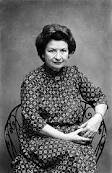The Republic of the Imagination
Two things happened to me yesterday that have contributed to this post : the first was that I happened to hear part of the repeat of Any Questions on BBC Radio 4, the second was that I finished Azar Nafisi's wonderful autobiographical work Reading Lolita in Tehran. As you'll probably realise from previous posts of mine, I'm a huge supporter of public libraries - I've used libraries for most of my life, and think they're wonderful. On Any Questions a question was raised about library closures in the UK, what really got me going was a throw-away comment by the Conservative blogger, Tim Montgomerie. After a long spiel, telling us why libraries needed to be closed to save money, and how it was all the local councils' fault (no mention there of the massive cut in library funding from central government), he said that all efforts would be made to preserve libraries for those who "most need access to books."
Now what the heck is that meant to mean? Who are these people who really need books? It sounds as though he thinks there is some elite strata of society who read, and then most of us, who obviously don't, and why would we want to? What has Jane Austen or Henry James or Nabokov or for that matter a modern writer like Khaled Hosseini, got to do with ordinary lives in Britain in the twentieth century? Reading Lolita in Tehran will give you the answer to that, Mr. Montgomerie.
Azar Nafisi is an Iranian academic, she spent most of her childhood in Iran, under the Shah's rule, was educated in the West (Britain, Switzerland and the US), and then returned to teach English Literature at Tehran University at the time of the revolution that brought into being the Islamic Republic of Iran. Eventually she was forced to leave the university, she then ran a book group for her most dedicated students from her home in Tehran. And while their rights as women were being abused, while the veil became politicized, and they could be punished for walking with a man who was not their husband, or for wearing colourful socks in a public place, they discussed Lolita and Jane Austen, and in their minds, their own "Republic of the Imagination" (Nafisi's own phrase), they were free.
The character of Daisy Miller was a link to a different freer world to those who were in the condemned cells of Iranian prisons, while Mr. Darcy opened a hardline Islamist's mind to a world that could be more open. And for us, in the liberal western world, what do books do for us? You can read plenty of non-fiction every day about what womens' lives were like under the Taliban in Afghanistan, but to really get under their skin, and for it to become personal, nothing is quite like reading A Thousand Splendid Suns or Reading Lolita in Tehran for the first time.
And that's why we need libraries, everyone needs free access to books, to form their own Republics of the Imagination, to allow them to be fully human.
I've been rather more political than usual in this post, but some things need defending. Many UK Public Libraries were founded in the nineteenth-century, in an astonishing period when literacy became more widespread, and the mass population started to feel the power of print. It's no accident that universal suffrage followed not long after, reading has the power to move both emotionally, imaginatively and intellectually. Ordinary people campaigned long and hard, and raised money, that they probably needed themselves, to go into these wonderful institutions that benefited everyone, not just libraries, but working-mens' halls, museums, schools, chapels, and ultimately hospitals and a health service. We shouldn't be complacent about what we now have, once it's gone, it's gone, and we need to raise our voice now if we want our libraries to last beyond our own lifetimes.
 |
| Pembroke Library Courtesy of Dublin City Public Libraries photostream |
Now what the heck is that meant to mean? Who are these people who really need books? It sounds as though he thinks there is some elite strata of society who read, and then most of us, who obviously don't, and why would we want to? What has Jane Austen or Henry James or Nabokov or for that matter a modern writer like Khaled Hosseini, got to do with ordinary lives in Britain in the twentieth century? Reading Lolita in Tehran will give you the answer to that, Mr. Montgomerie.
Azar Nafisi is an Iranian academic, she spent most of her childhood in Iran, under the Shah's rule, was educated in the West (Britain, Switzerland and the US), and then returned to teach English Literature at Tehran University at the time of the revolution that brought into being the Islamic Republic of Iran. Eventually she was forced to leave the university, she then ran a book group for her most dedicated students from her home in Tehran. And while their rights as women were being abused, while the veil became politicized, and they could be punished for walking with a man who was not their husband, or for wearing colourful socks in a public place, they discussed Lolita and Jane Austen, and in their minds, their own "Republic of the Imagination" (Nafisi's own phrase), they were free.
The character of Daisy Miller was a link to a different freer world to those who were in the condemned cells of Iranian prisons, while Mr. Darcy opened a hardline Islamist's mind to a world that could be more open. And for us, in the liberal western world, what do books do for us? You can read plenty of non-fiction every day about what womens' lives were like under the Taliban in Afghanistan, but to really get under their skin, and for it to become personal, nothing is quite like reading A Thousand Splendid Suns or Reading Lolita in Tehran for the first time.
And that's why we need libraries, everyone needs free access to books, to form their own Republics of the Imagination, to allow them to be fully human.
I've been rather more political than usual in this post, but some things need defending. Many UK Public Libraries were founded in the nineteenth-century, in an astonishing period when literacy became more widespread, and the mass population started to feel the power of print. It's no accident that universal suffrage followed not long after, reading has the power to move both emotionally, imaginatively and intellectually. Ordinary people campaigned long and hard, and raised money, that they probably needed themselves, to go into these wonderful institutions that benefited everyone, not just libraries, but working-mens' halls, museums, schools, chapels, and ultimately hospitals and a health service. We shouldn't be complacent about what we now have, once it's gone, it's gone, and we need to raise our voice now if we want our libraries to last beyond our own lifetimes.






.jpeg)



Comments